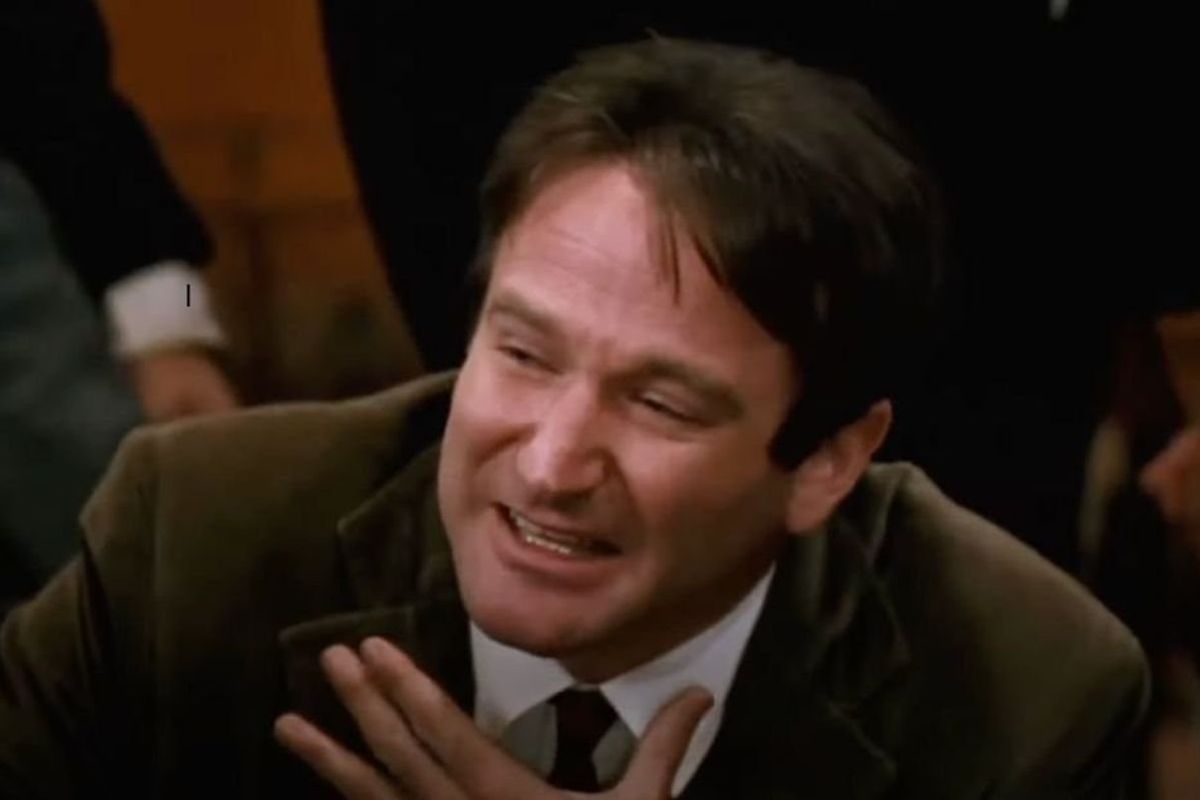Judy Blume tells it like it is when it comes to books and censorship.
Judy Blume's actions speak louder than words when asked how she feels about banning books.
In June, author and all-around American treasure Judy Blume spoke at Washington, D.C.'s Politics & Prose bookstore.
Blume was there promoting her latest novel "In the Unlikely Event," but her nearly hour-long conversation with NPR's Linda Holmes was an entertaining, career-spanning sit-down.
One of the interview's most interesting portions touched on the topic of "banned books," something Blume knows all too well, having been the target of censorship efforts ("Forever," "Blubber," "Deenie," "Are You There God? It's Me, Margaret," and "Tiger Eyes"). She was asked if it hurt for people to say her books were bad for kids.
Her response was honest:
GIFs via Politics & Prose.
And just plain fantastic:
JUDY! Yes! Actions DO speak louder than words!
But if this discussion happened in June, why am I writing about it in October? Well...
Sept. 27-Oct. 3, 2015, is the annual Banned Books Week.
In 1982, in response to a massive push to ban certain books from schools, bookstores, and public libraries, the American Library Association set aside a week each year to celebrate controversial literature and push back on censorship.
"Banned Books Week is the national book community's annual celebration of the freedom to read," reads the official BBW website. "Hundreds of libraries and bookstores around the country draw attention to the problem of censorship by mounting displays of challenged books and hosting a variety of events."
Blume, whose work has faced countless challenges, is a vocal supporter of the week and anti-censorship efforts.
"Censors don't want children exposed to ideas different from their own," she writes on her website. "If every individual with an agenda had his/her way, the shelves in the school library would be close to empty. I wish the censors could read the letters kids write."
The larger point is about the important differences between criticism and censorship.
Criticism is the ability to say why you like or don't like something. Criticism is, generally speaking, good. Criticism sparks conversation.
Censorship is something else entirely. Again, from Blume's website:
"I believe that censorship grows out of fear, and because fear is contagious, some parents are easily swayed. Book banning satisfies their need to feel in control of their children's lives. This fear is often disguised as moral outrage. They want to believe that if their children don't read about it, their children won't know about it. And if they don't know about it, it won't happen.
Today, it's not only language and sexuality (the usual reasons given for banning my books) that will land a book on the censors' hit list. It's Satanism, New Age-ism and a hundred other isms, some of which would make you laugh if the implications weren't so serious. Books that make kids laugh often come under suspicion; so do books that encourage kids to think, or question authority; books that don't hit the reader over the head with moral lessons are considered dangerous." — Judy Blume
The fight against censorship is important, especially for anyone who stands out from the crowd.
In the Politics & Prose interview, Blume talked about growing up and so desperately wanting to be "normal." It's a theme that runs throughout her early work, in particular "Are You There God? It's Me, Margaret."
When you feel "different," like an outcast, it's extremely comforting to know that others like you have felt the same — even when that person is a fictional character named Margaret. To so very many, that book served as a guide to self-acceptance and understanding the importance of challenging norms.
Without Judy Blume, so many of us wouldn't have learned that wonderful lesson.
You can (and should) watch Judy Blume's full conversation with Linda Holmes below.
- Comic shop owner offers free copies of banned graphic novel 'Maus,' causing massive sales - Upworthy ›
- New York library fights censorship by allowing banned books free for people outside of the state - Upworthy ›
- Homosexuality in the Bible: Here's what six passages say and how to interpret them. - Upworthy ›
- 14 books that rewired people’s brains and completely changed the way they see the world - Upworthy ›
- 15 books real people say completely changed the way they see the world - Upworthy ›



 A woman reading a book.via
A woman reading a book.via A woman tending to her garden.via
A woman tending to her garden.via
 A person on Threads makes a typo.Photo credit: Threads/@maureenmzobe
A person on Threads makes a typo.Photo credit: Threads/@maureenmzobe
 Individual impact isn't as inspiring to Gen Z as it was to
Individual impact isn't as inspiring to Gen Z as it was to  Gen Z is much more black and white about behaviors than previous generations.
Gen Z is much more black and white about behaviors than previous generations. 

 Young man holds up his hand to show five.
Young man holds up his hand to show five. Two women having a conversation at a coffee shop.
Two women having a conversation at a coffee shop.  Two women talking as the leave a yoga class
Two women talking as the leave a yoga class